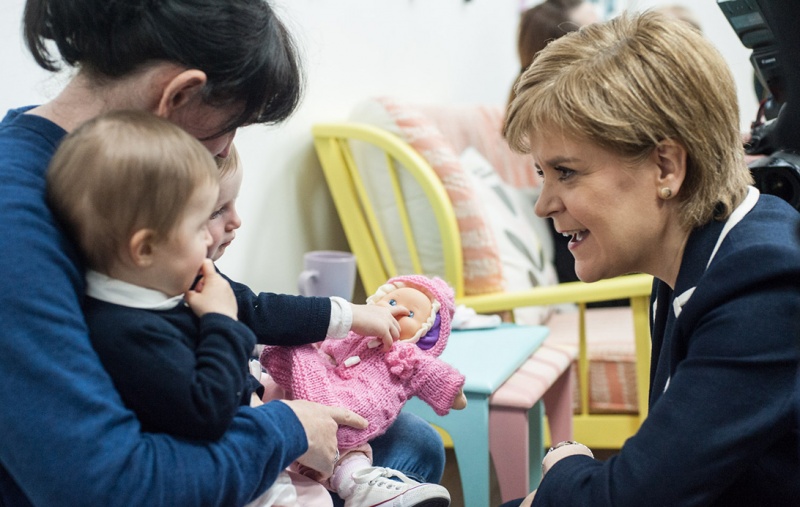Delivering a safer Scotland
The SNP Scottish Government is committed to ensuring that Scotland’s justice system retains its focus on prevention and rehabilitation, whilst enhancing support for victims.
The Scottish Parliament has now passed the Management of Offenders Bill, which takes forward a number of important changes to improve the criminal justice system in Scotland.
The Bill includes the expansion of electronic monitoring as part of the continued development of community-based alternatives to prison, and will ensure there is a more appropriate balance between the rights of people not to disclose their previous offending behaviour and the need for general public protection.
Over the last twelve years the SNP Scottish Government has taken action to make Scotland a safer place: investing in our police and reforming our criminal justice system.
Here’s how, in government, we’re delivering a safer Scotland.
Over the last decade, Scotland has become a safer place.
Since taking office, recorded crime is down 42 per cent in Scotland – this is the lowest level ever estimated by the Scottish Crime and Justice Survey.
The reconviction rate has been reduced to its lowest level in 20 years, thanks to tough community sentences.
And figures show that people feel safer too. The 2017-18 Scottish Crime and Justice survey found that the proportion of adults that feel safe walking alone in their local area after dark is at a record high.
Policing in Scotland is performing well.
We have a higher number of police officers than at any time during the previous administration. And we will protect the police revenue budget in real terms for the entirety of this parliament.
The Scottish Crime and Justice survey also shows that most Scots believe police are doing a good or excellent job in their local area.
We’ve made sure serious offenders do their time in full.
We have ended automatic early release, meaning that long-term prisoners who pose an unacceptable risk to public safety will serve their sentence in full.
We’re investing proceeds from crime in Scotland’s communities.
Since 2008, £92 million has been seized from criminals and has been reinvested in community projects for young people across Scotland.
We’re shifting the balance towards the prevention of youth offending.
The number of young people being prosecuted in court for crime has been reduced by 78 per cent and those aged under 18 in prison has reduced by two-thirds compared to 2006-07.
We’re taking a new, more progressive approach, to prisons and community justice policy.
We have closed Scotland’s only women’s prison at Cornton Vale and are investing in a new progressive model for women’s prisons.
We’re taking new, groundbreaking, action on domestic violence.
We’ve introduced the world leading Domestic Abuse Act that makes psychological domestic abuse and controlling behaviour a crime. Scotland is now one of only a handful of countries across the world to introduce dedicated legislation that will cover not just physical abuse, but also other forms of psychological abuse and coercive and controlling behaviour which cannot easily be prosecuted under the existing criminal law.
We’re investing more than any previous government in taking on sectarianism.
Since 2012, we have invested record funding of £13.5 million to support anti-sectarian education in schools, prisons, workplaces and communities.
‘Revenge porn’ is now illegal.
We have made the sharing of so-called ‘revenge porn’ a specific criminal offence, carrying a maximum penalty of five years imprisonment.
We’re leading the way on the age of criminal responsibility.
We have passed ground-breaking legislation to raise the minimum age of criminal responsibility – ensuring no child under 12 will ever again be arrested or charged with an offence in Scotland. This bold, progressive, child-centred approach will make a real difference to children’s lives,.
We are helping victims and witnesses feel supported, safe and informed.
We are committed to putting victims at the centre of the Justice system. We have introduced legislation to support children and vulnerable witnesses give the best evidence by enabling greater use of pre-recorded evidence.


